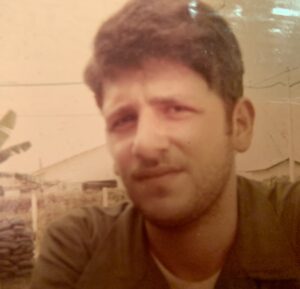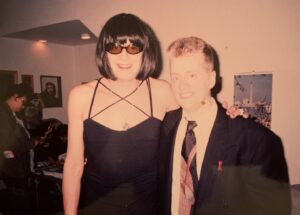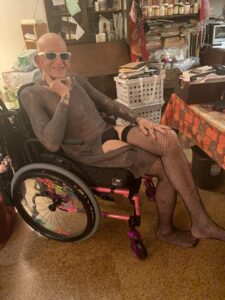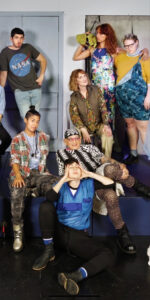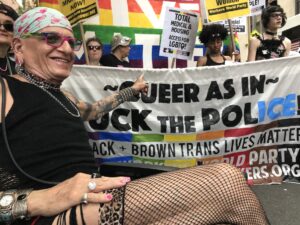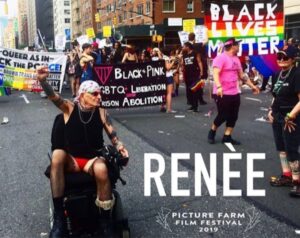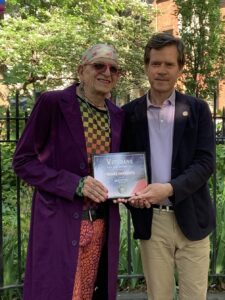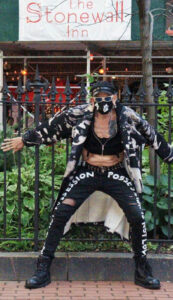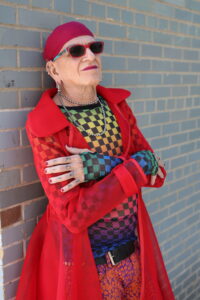Renee Imperato was born on May 8, 1948 in the Hell’s Kitchen area of New York City, where her mother worked making wigs and toupees for local theaters. Assigned male at birth, Renee describes the first 30 some years of life as living as an “unconscious male impersonator.” She was bullied in school with homophobic slurs, so she lived in denial about her identity.
As a young adult, Renee went to fight in the Vietnam War. The Mai Lai Massacre opened her eyes to what the US was fighting for, so she became involved in the anti-war movement, hosting anti-war meetings in the barracks. When she was transferred back to the US towards the end of the war, she participated in anti-war rallies and demonstrations.
After her discharge in September 1971, she joined the Workers World Party, where she met communist revolutionary Leslie Feinberg. Leslie opened her eyes to queer oppression, gender consciousness, and political organizing. Renee got a job working as a taxi driver in New York City, which she kept for 27 years, in order to maintain a flexible schedule to do political organizing.
Through the 70s, Renee was married to and had two children with a woman, and also found friends and lovers in the New York City queer scene. In the late 80s and early 90s, after her first marriage ended, she moved to Europe and married a dance critic in Paris. That second marriage quickly dissolved, and towards the end, she found herself trying on her ex-wife’s clothes. As she returned to New York City and started driving cabs again, she also started exploring the drag scene, eventually presenting full time as a drag queen.
During our interview, Renee shared with us the importance of understanding drag’s ballroom origins, and the immense oppression the first drag queens faced. She also explained how many of the first drag queens were trans women, though they didn’t identify as the latter due to the limited vocabulary available at the time.
As Renee became more integrated into the drag club scene, she started working at 220 Club and joined the House of Sally. Through Sally, she met many LGBTQ+ civil rights icons, including Marsha P. Johnson, Sylvia Rivera, and Stormé DeLarverie. She survived countless police bar raids. Despite the challenges that came with decades of presenting herself authentically while being in a wheelchair, helping queens escape from cops, using her taxi for years as a place to do sex work to make ends meet, and navigating PTSD, Renee furiously clung onto the importance of living a life entirely true to herself.
Now, Renee is working with Sofia Adams from the Gender Project to have a documentary, My Name, made about her life. She has been featured in the exhibit “On Our Backs: The Revolutionary History of Queer Sex Work” in the Leslie Lohman Musemu, an LGBTQ history museum in New York City. She sits on the SAGE Advisory Council to advocate for queer elders, and is the organization’s first trans chairperson. She is working on a play, Night of Taxi, Trans Portation, recounting her experiences doing sex work in her taxi. To this day, Renee is determined to live authentically, and in doing so, paves the way for others to do the same.

